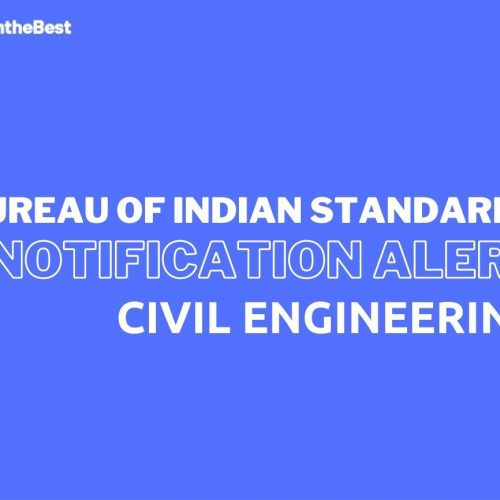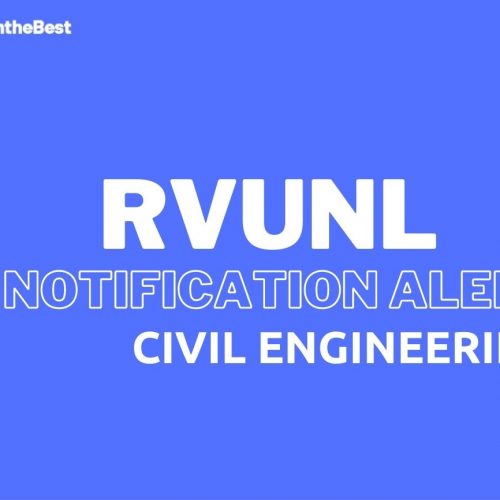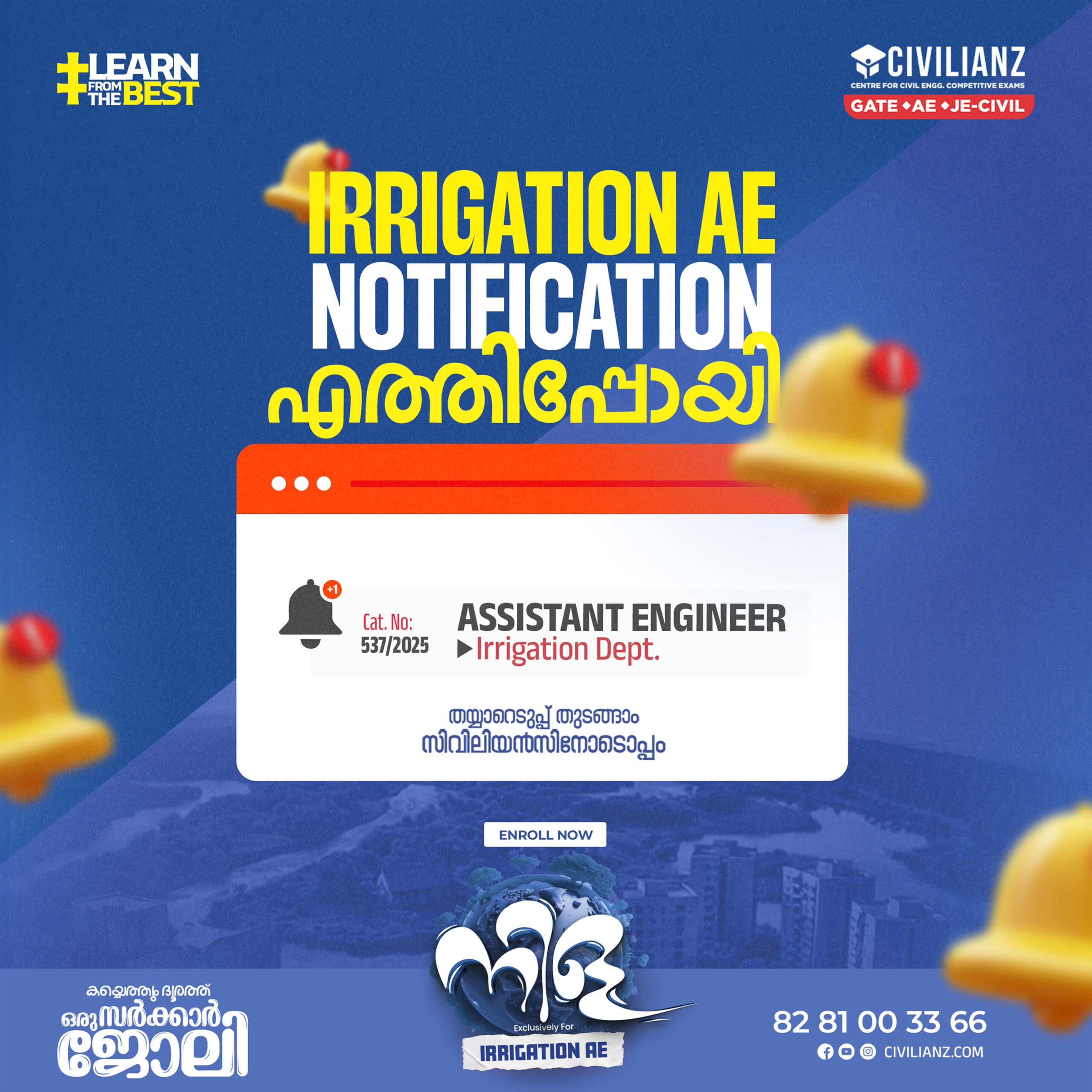
NETAJI SUBHAS UNIVERSITY OF TECHNOLOGY – NSIT RECRUITMENT 2021
| Organisation name | Netaji Subhas University of Technology |
| Post name | 1. Assistant Professor 2. Associate Professor 3. Professor |
| Vacancies | 25 |
| Salary | Rs. 57,700 – 2,18,200 |
| Age | 1. Assistant Professor – 55 years 2. Associate Professor – 50 years 3. Professor – 55 years |
| Location | Delhi |
| Application fees | Rs 2000 |
| Application mode | Online |
| Last date to apply | 16.07.2021 |
| Official website | www.nsit.ac.in |
Online Applications in the prescribed format are invited from eligible candidates for direct recruitment to the following faculty positions latest by 16.07.2021 (Friday) followed by submission of the hard copy of filled applications form along with all relevant enclosures upto 02.08.2021 (Monday)
NUMBER OF POSTS
| Name of post | Department | Number of vacancy |
| Assistant Professor | Civil Engineering | 17 |
| Associate Professor | Civil Engineering | 06 |
| Professor | Civil Engineering | 02 |
EDUCATION QUALIFICATION
| Name of post | Qualification | Pay Scale |
| Assistant Professor | 1. Ph. D. degree in relevant field and First class or equivalent at either Bachelor’s or Master’s level 2. Minimum of 10 years of experience in teaching/ research/ industry out of which at least 3 years shall be at a post equivalent to that of an Associate Professor 3. At least 6 research publications at the level of Associate Professor in SCI journals / UGC / AICTE approved list of journals |
Rs. 57,700 – 1,82,400 |
| Associate Professor | 1. Ph.D. degree in the relevant field and First class or equivalent at either Bachelor’s or Master’s level in the relevant branch 2. At least total 6 research publications in SCI journals / UGC / AICTE approved list of journals. 3. Minimum of 8 years of experience in teaching / research / industry out of which at least 2 years shall be Post Ph.D. experience |
Rs.1,31,400- 2,17,100 |
| Professor | B. E. / B. Tech. /B. S. and M. E./ M.Tech./ M. S. or Integrated M. Tech., in relevant branch with first class or equivalent in any one of the degrees |
Rs.1,44,200- 2,18,200 |
AGE LIMIT
| Name of post | Maximum age limit |
| Professor | 55 years |
| Associate Professor | 50 years |
| Assistant Professor | 35 years |
APPLICATION FEE
| For General/OBC /EWS Category Candidates | Rs. 2,000/- |
| For SC/ST/PWD Category Candidates | Rs. 1000/- |
ELIGIBILITY CRITERIA
1. The candidate must be a citizen of India.
2. The educational qualification, experience, age and other eligibility condition as stipulated in advertisement shall be determined as on the 1st June, 2021.
GENERAL INFORMATION
1. All entrants would be covered mandatorily under the New Pension Scheme (NPS) asa policy duly approved by the Govt. of NCT of Delhi.
2. The prescribed qualifications/experience is the minimum and the mere possession and fulfilling the essential and desirable qualifications of the same does not entitle the candidates to be called for the interview.
3. The candidates are advised to go through the Guidelines for Screening cum Assessment for direct appointment to the position of Professor, Associate Professor and Assistant Professor
4. The candidates already in Govt./Semi-Govt service / Autonomous Institutions /PSU/ Universities/etc. must apply by uploading the `No Objection Certificate’ alongwith their applications.
5. All the candidates should submit their applications online on or before 16.07.2021 (Friday) and thereafter send the printout of it with self- attested copies of all documents in support of academic and research performance and other scholarly and academic credentials/ accomplishments on or before 02.08.2021 (Monday).
6. The candidates short-listed for the interview shall be informed by E- mail/website. The candidates are advised in their own interest to mention their correct mobile no. and email IDs in the application. They are also advised to regularly visit the website.
7. No TA/DA in connection with appearing in the interview etc. will be paid to the candidate.
8. Incomplete applications or applications received after last date shall not be considered. Application will be considered only if both online and hard copy application form, duly filled, are received by due date. University shall not be liable for any postal delay.
9. The last date for filling up the online applications 16.07.2021 (Friday) till 12.00 pm (night). The hard copy (Print out) of filled application form along with all enclosures covering the candidates credentials must reach on or before 02.08.2021 (Monday).
GENERAL GUIDELINES
1. The direct recruitment to the posts of Professor/ Associate Professor and Assistant Professor inthe University shall be on the basis of merit and would be conducted through all India advertisement and selection by the duly-constituted Selection Committees.
2. The overall selection procedure shall incorporate transparent, objective and credible methodology of analysis of the merits and credentials of the applicants, based on the weightage given to the performance of the candidate in different relevant dimensions.
3. Mere possession of minimum qualifications, for the post applied for, may not entitle a candidate for a call for the interview.
4. The University shall have the right to restrict the number of candidates to a reasonable number (normally 10 candidates for the first post and 5 candidates for each subsequent post) to be called for interview.
5. The University shall conduct a written test for the post of Assistant Professor to short list the candidates.
6. After allocation of the weightages to all the eligible candidates (Qualified in written test and exempted from written test), the Screening Committee will draw a list of all the eligible candidates indicating the points scored by them
7. In case of tie in the points of two or more candidates for the last slot, all the candidates with the same score shall be called for interview.
Screening-cum-Assessment Criteria for Direct Recruitments
1. Assessment/shortlisting of the candidates shall be based on the evidence uploaded by the applicant such as: copy of the publications, Sanction letters of the projects, Certificates of utilization/completion of the projects (issued by the Institute/ University), acknowledgements for patent filing and approval letters, Ph.D. award letter/notification of research scholars guided, etc.
2. In the disciplines where specialized programmes are being run, Screening Committee may shortlist the candidates for interview, from amongst the eligible candidates having area of specialization required for the posts.
3. Selection Committee may not be held if the number of eligible candidates for any position (Assistant Professor/Associate Professor/Professor) is less than three. In such case, the positions shall be re-advertised.
4. Depending upon the exigency and requirements of the University, the condition of minimum/ maximum number of candidates to be called for interview may be relaxed by the University.
5. Teaching experience as full-time faculty member with regular scale in any recognized University/ College/ Institution of Higher Education at appropriate position shall be counted
6. Research experience, after Ph.D. as full-time Post-doctoral Fellow/ Research Associate/Research Scientist etc., in recognized University/ Research Organization in India or abroad shall be counted
7. Experience certificate clearly mentioning pay scale, Period of service, name of the post whether full-time/ part time, whether regular/ contract /adhoc basis, will be required to be submitted. Certificate lacking any of the above aspect shall not be treated as valid.
8. If a class/division is not awarded, a minimum of 60% marks in aggregate shall be considered equivalent to first class/ division. If a Grade Point System is adopted but the conversion formula is not provided by the concerned University/Institution, the applicant can convert their CGPA into
equivalent marks as per formula: Aggregate Percentage of marks = (CGPA – 0.75) × 10
9. If any false information is provided by the candidate, his/her candidature for the post shall stand cancelled.
Conduct of Written Test for Short listing of Candidates for the post of Assistant Professor
There may be a written test for shortlisting of the candidates, in the case of Recruitment of Assistant Professor.
1. The applications received shall be scrutinized as per the eligibility criteria notified in the advertisement by the University for the Respective post.
2. List of eligible candidates for appearing in the written test shall be uploaded on the University website.
3. The eligible candidates shall be required to download Admit Cards from
University website for appearing in the written test.
4. The written test for the post of Assistant Professor shall be based on prescribed syllabus
5. The date of Written Test shall be notified in due course of time on University website. The candidates shall be advised to visit the University website from time to time for further updates.
6. Mere qualifying the written test shall not guarantee the candidatebe to be
called for interview.
7. A pool of the eligible candidates will be formed including the candidates
who qualify the written test and the candidates who were exempted from
written test.
8. The number of candidates from the above pool of eligible candidates to be called for interview shall be based on aggregate points
9. The exemption from the Written Test for the purpose of recruitment to the post of Assistant Professor shall be granted to the candidates who has a Ph.D. degree in the relevant branch and if:
1) the candidates has at-least one publication in Category I OR
2) the candidate has at-least two publications in Category II OR
3) the candidate has at-least one publication in Category II & four publications in category III OR
4) the candidate has at-least seven publications in Category III.
Claim for Exemption from the written test
The candidates who wish to be considered for exemption from the screening test should mention the same in the online application form. In case the exemption is claimed, necessary documents in support of the claim should be Uploaded along with the online application form.
Weightage in the Written Test
The candidates having Ph.D. degree, who could not become eligible for exemption of written test as notified, but have good research papers as a First/Second author or corresponding author will be given weightage of 2% of maximum marks of written test for each research paper in category II/III for the post of Assistant Professor. However, the maximum weightage including all weightages will not exceed 5% of the maximum marks of the written test.
SYLLABUS FOR THE WRITTEN TEST FOR THE POST OF ASSISTANT PROFESSOR (CIVIL) ENGINEERING
Verbal Ability:
Grammar, Vocabulary, Coding-Decoding & Series, Directions, Blood relations, Arrangements, Syllogism, Inference & Assumptions, Clocks and Puzzles.
Numerical Ability:
Fundamentals, Equations, Percentage, Averages, Ratio & Propotions, Mixture and Alligations, Data Interpretation & Data Suffiency, Time, Speed & Distance, Time & Work, Set Theory & Venn Diagrams, Progression, Functions & Graphs, Logarthims, Permutations and Combinations,
Probability, Geometry & Mensuration.
Mathematics
Linear Algebra:
Matrix Algebra, Systems of linear equations, Eigen values and Eigen vectors.
Calculus:
Functions of single variable, limit, continuity and differentiability, mean value theorems, indeterminate forms; evaluation of definite and improper integrals; double and triple integrals; partial derivatives, total derivative, Taylor series (in one and two variables), maxima and minima, Fourier series; gradient, divergence and curl, vector identities, directional derivatives, line, surface and volume integrals, applications of Gauss, Stokes and Green’s theorems.
Differential equations:
First order equations (linear and nonlinear); higher order linear differential equations with constant coefficients; Euler-Cauchy equation; initial and boundary value problems; Laplace transforms; solutions of heat, wave and Laplace’s equations.
Complex variables:
Analytic functions; Cauchy-Riemann equations; Cauchy’s integral theorem and integral formula; Taylor and Laurent series.
Probability and Statistics:
Definitions of probability, sampling theorems, conditional probability; mean, median, mode and standard deviation; random variables, binomial, Poisson and normal distributions.
Numerical Methods:
Numerical solutions of linear and non-linear algebraic equations; integration by trapezoidal and Simpson’s rules; single and multi-step methods for differential equations.
Structural Engineering
Engineering Mechanics
System of forces, free-body diagrams, equilibrium equations; Internal forces in structures; Friction and its applications; Kinematics of point mass and rigid body; Centre of mass; Euler’s equations of motion; Impulse-momentum; Energy methods; Principles of virtual work.
Solid Mechanics
Bending moment and shear force in statically determinate beams; Simple stress and strain relationships; Theories of failures; Simple bending theory, flexural and shear stresses, shear centre; Uniform torsion, buckling of column, combined and direct bending stresses.
Structural Analysis
Statically determinate and indeterminate structures by force/ energy methods; Method of superposition; Analysis of trusses, arches, beams, cables and frames; Displacement methods: Slope deflection and moment distribution methods; Influence lines; Stiffness and flexibility methods of structural analysis.
Construction Materials and Management
Construction Materials: Structural steel – composition, material properties and behaviour; Concrete – constituents, mix design, short-term and long-term properties; Bricks and mortar; Timber; Bitumen. Construction Management: Types of construction projects; Tendering and construction contracts; Rate analysis and standard specifications; Cost estimation; Project planning and network analysis – PERT and CPM.
Concrete Structures
Working stress, Limit state and Ultimate load design concepts; Design of beams, slabs, columns; Bond and development length; Prestressed concrete; Analysis of beam sections at transfer and service loads.
Steel Structures
Mathematical modeling and representation of systems, Feedback principle, transfer function, Block diagrams and Signal flow graphs, Transient and Steady, state analysis of linear time invariant systems, Routh-Hurwitz and Nyquist criteria, Bode plots, Root loci, Stability analysis, Lag, Lead and Lead, Lag compensators; P, PI and PID controllers; State space model, State transition matrix.
Working stress and Limit state design concepts; Design of tension and compression members, beams and beam- columns, column bases; Connections – simple and eccentric, beam-column connections, plate girders and trusses; Plastic analysis of beams and frames.
Soil Mechanics and Foundation Engineering
Origin of soils, soil structure and fabric; Three-phase system and phase relationships, index properties; Unified and Indian standard soil classification system; Permeability – one dimensional flow, Darcy’s law; Seepage through soils – two-dimensional flow, flow nets, uplift pressure,
piping; Principle of effective stress, capillarity, seepage force and quicksand condition; Compaction in laboratory and field conditions; One-dimensional consolidation, time rate of consolidation; Mohr’s circle, stress paths, effective and total shear strength parameters, characteristics of clays and sand.
Sub-surface investigations – scope, drilling bore holes, sampling, plate load test, standard penetration and cone penetration tests; Earth pressure theories – Rankine and Coulomb; Stability of slopes finite and infinite slopes, method of slices and Bishop’s method; Stress distribution in soils – Boussinesq’s and Westergaard’s theories, pressure bulbs; Shallow foundations – Terzaghi’s and Meyerhoff’s bearing capacity theories, effect of water table; Combined footing and raft foundation; Contact pressure; Settlement analysis in sands and clays; Deep foundations – types of piles, dynamic and static formulae, load capacity of piles in sands and clays, pile load test, negative skin friction.
Water Resources Engineering
Fluid Mechanics:
Properties of fluids, fluid statics; Continuity, momentum, energy and corresponding equations; Potential flow, applications of momentum and energy equations; Laminar and turbulent flow; Flow in pipes, pipe networks; Concept of boundary layer and its growth.
Hydraulics:
Forces on immersed bodies; Flow measurement in channels and pipes; Dimensional analysis and hydraulic similitude; Kinematics of flow, velocity triangles; Basics of hydraulic machines, specific speed of pumps and turbines; Channel Hydraulics – Energy-depth relationships, specific energy,
critical flow, slope profile, hydraulic jump, uniform flow and gradually varied flow.
Hydrology:
Hydrologic cycle, precipitation, evaporation, evapo-transpiration, watershed, infiltration, unit hydrographs, hydrograph analysis, flood estimation and routing, reservoir capacity, reservoir and channel routing, surface run-off models, ground water hydrology – steady state well hydraulics and aquifers; Application of Darcy’s laws.
Irrigation:
Duty, delta, estimation of evapo-transpiration; Crop water requirements; Designof lined and unlined canals, head works, gravity dams and spillways; Design of weirs on permeable foundation; Types of irrigation systems, Irrigation methods; Water logging and drainage; Canal regulatory works, cross-drainage structures, outlets and escapes.
Environmental Engineering
Water and Waste Water:
Quality standards, basic unit processes and operations for water treatment. Drinking water standards, water requirements, basic unit operations and unit processes for surface water treatment, distribution of water. Sewage and sewerage treatment, quantity and characteristics of wastewater.
Primary, secondary and tertiary treatment of wastewater, effluent discharge standards. Domestic wastewater treatment, quantity of characteristics of domestic wastewater, primary and secondary treatment. Unit operations and unit processes of domestic wastewater, sludge disposal.
Air Pollution:
Types of pollutants, their sources and impacts, air pollution meteorology, air pollution control, air quality standards and limits.
Municipal Solid Wastes:
Characteristics, generation, collection and transportation of solid wastes, engineered systems for solid waste management (reuse/ recycle energy recovery, treatment and disposal).
Noise Pollution:
Impacts of noise, permissible limits of noise pollution, measurement of noise and control of noise pollution.
Transportation Engineering
Transportation Infrastructure:
Highway alignment and engineering surveys; Geometric design of highways – cross-sectional elements, sight distances, horizontal and vertical alignments; Geometric design of railway track; Airport runway length, taxiway and exit taxiway design.
Highway Pavements:
Highway materials – desirable properties and quality control tests; Design of bituminous paving mixes; Design factors for flexible and rigid pavements; Design of flexible pavement using IRC: 37-2012; Design of rigid pavements using IRC: 58-2011; Distresses in concrete pavements.
Traffic Engineering:
Traffic studies on flow, speed, travel time – delay and O-D study, PCU, peak hour factor, parking study, accident study and analysis, statistical analysis of traffic data; Microscopic and macroscopic parameters of traffic flow, fundamental relationships; Control devices, signal design by Webster’s
method; Types of intersections and channelization; Highway capacity and level of service of rural highways and urban roads.
Geomatics Engineering
Principles of surveying; Errors and their adjustment; Maps – scale, coordinate system; Distance and angle measurement – Levelling and trigonometric levelling; Traversing and triangulation survey; Total station; Horizontal and vertical curves.
Photogrammetry and Remote Sensing – Scale, flying height; Basics of remote sensing and GIS.
IMPORTANT DATES
| Last date for filling up the online applications | 16.07.2021 |
For detailed advertisements,
DOWNLOAD












Leave a comment